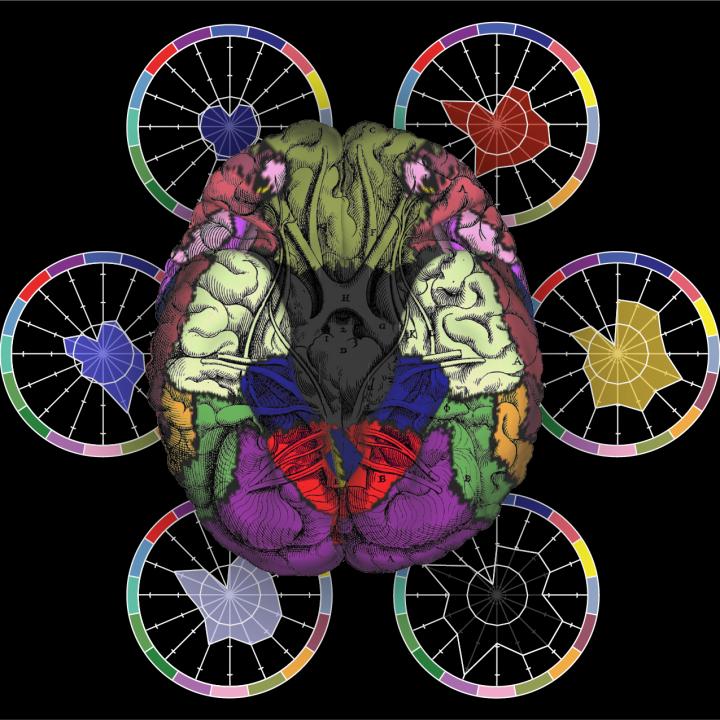Functional connectomics of affective and psychotic pathology

Credit: Justin T. Baker, MD, PhD
Researchers from McLean Hospital and Yale University have published findings of their study of large-scale systems in the brain, findings that could improve understanding of the symptoms and causes of bipolar disorder, schizophrenia, depression, and other mental illnesses. Their paper, “Functional Connectomics of Affective and Psychotic Pathology,” published in the Proceedings of the National Academy of Sciences of the United States of America, details their investigation into brain network connectivity in patients with psychotic disorders.
According to lead researcher Justin T. Baker, MD, PhD, scientific director of the McLean Institute for Technology in Psychiatry, the study “took a birds-eye view to look into the ways large-scale systems in the brain interact with one another.” Baker and his colleagues used functional magnetic resonance imaging data from more than 1,000 individuals, including patients who had been diagnosed with conditions such as bipolar disorder, schizophrenia, and depression. Information was collected through rest scans, in which subjects were asked to simply lie in a scanner with their eyes open, allowing researchers to capture data about spontaneous fluctuations in the brain.
Baker explained that the work is based on connectomics, the concept of “measuring all connections in the brain at the same time.” He said that this type of “whole-system perspective” differs from most research into the biological foundations of psychiatric conditions. “For most studies, illnesses are studied in isolation, but evidence strongly suggests that distinct psychiatric diagnoses are not separated by clear neurobiological boundaries,” said Baker. “The approach we’ve taken is to look at the whole brain so you can see not only how individual systems–like the visual system and motor system–are functioning, but how higher order systems–like cognitive systems–are functioning in the brain to see if there are correlations.”
He said that the study is significant because “we don’t have any objective measures of psychiatric illnesses that allow us to verify a patient’s reports about their symptoms–there are no vital signs in psychiatry.” This work, however, allows for “brain ‘fingerprinting’ to try to address what changes in the brain are shared across illnesses and what aspects might be specific to different illnesses,” said Baker. “This work points to evidence at a high level that there are very pronounced changes in the brain that could start to serve as an objective biomarker.”
Moreover, Baker stated that “the study begins to give us a better way of seeing how schizophrenia, bipolar disorder, and depression are similar or have shared underlying causes.” He explained that prior research has indicated “that there is significant genetic risk for schizophrenia and bipolar disorder, and we also know that these conditions affect certain parts of the brain, but this study highlights that one system is affected or disrupted as a function of how severe the illness is, irrespective of whether it was psychosis or an affected illness like depression.”
Baker said that he and his colleagues plan to build on this research through studies into the functioning of large-scale brain systems related to OCD and trauma and longer-term investigations. “We want to see if there is a fingerprint for different conditions and then use that information and apply it to the individual,” he said. “We are conducting studies that follow individuals over time to look at the brain to see how symptoms are changing. We’re trying to go from the snapshot view of these biomarkers to something that is much more dynamic and captures changes and nuances.”
###
McLean Hospital has a continuous commitment to put people first in patient care, innovation and discovery, and shared knowledge related to mental health. In 2017 and 2018, it was named the #1 hospital for psychiatric care in the United States by U.S. News & World Report. McLean Hospital is the largest psychiatric affiliate of Harvard Medical School and a member of Partners HealthCare. For more information, please visit mcleanhospital.org or follow us on Facebook or Twitter.
Media Contact
Laura Neves
[email protected]
Original Source
https:/
Related Journal Article
http://dx.




